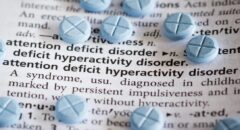 It’s a well-known fact that the things you put into your body during pregnancy can ultimately affect you baby’s health.
It’s a well-known fact that the things you put into your body during pregnancy can ultimately affect you baby’s health.
But did you know that an unhealthy prenatal diet could determine your child’s risk of ADHD, or attention-deficit/hyperactivity disorder?
According to researchers, a diet high in fat and sugar during pregnancy is responsible for IGF2, a gene that nurtures the brain development of the fetus. This gene has been linked previously to ADHD.
“These results suggest that promoting a healthy prenatal diet may ultimately lower ADHD symptoms and conduct problems in children,” senior researcher Edward Barker said. He’s the director of developmental psychopathology lab at King’s College London.
There are many causes of ADHD, Barker said, so he doesn’t want to infer a direct cause-and-effect between prenatal diet and fetal brain development.
But previous animal research has proven that whatever a mother eats while carrying her unborn child can lead to changes in genes in the child’s brain.
So researchers assessed 83 British children between ages 7 and 13. Their mothers filled out a survey regarding their diets during pregnancy.
The study, published in the Journal of Child Psychology and Psychiatry, shows a higher risk for genetic changes in the children with behavioral problems when their mothers had poor pregnancy diets.
These diets included processed foods and baked sweets.
Keep in mind: ADHD can be genetic, as well. So the children could’ve inherited the disorder.








